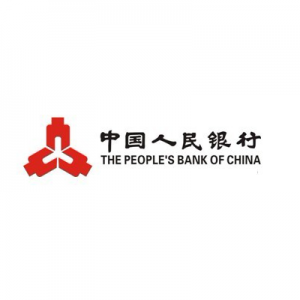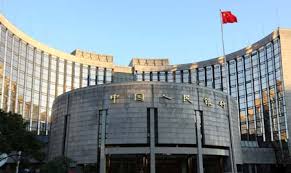
According to a new press release on the website of the Chinese State Administration of Foreign Exchange (SAFE) the government will introduce more rigorous inspections of the foreign exchange businesses of financial institutions during the course of the year.
The news is yet another sign that the Chinese government is laying the groundwork for a more open economy and it remains committed to an adoption of a flexible exchange rate policy. That said, SAFE mentions in its statement that it will be monitoring closely cross-border capital inflows and outflows.
The statement released on SAFE’s website, concludes that any liberalisation effort will be managed tightly with the People's Bank Of China (PBOC), pledging to heighten its alertness to prevent systemic and regional financial risks. The administration has stated that it will aim to prevent any impact from cross-border foreign exchange flows.
SAFE Mostly Talks About Banks, but…
The announcement is mainly geared towards the banking system, which will be at the core of the FX market reform. SAFE has held briefings with 21 Chinese and 11 foreign banks which do business in mainland China. With the reinforcement of commitment to investment and trade facilitation, some banking institutions have faced criticism in regards to compliance to their own internal procedures when dealing with foreign exchange.

The People's Bank of China
During its meeting with the banks, SAFE has stated that throughout 2013 it investigated 439 cases of banks violating appropriate foreign exchange business conduct. The most frequent irregularities have been related to regulatory failing including failure to set up separate settlement and sale subjects, failure to go through the financial institutions’ own foreign exchange transactions, illegal settlements for enterprise businesses or for personal use.
With SAFE announcing the news that the banks will have a harder time dealing with regulatory checks, it is reasonable to expect that the rest of businesses which involve Forex transactions will come under further scrutiny.
In this transitional environment the most prudent decision for Chinese authorities would be to introduce a proper regularity framework for FX businesses, however having in mind the speed of reforms, that framework has to already be in the works which up until now has not been announced nor implied by PBOC or any other government agency.
Emerging FX Volatility Driven by Renminbi Flows
In the meantime Chinese Yuan volatility continues to ripple across other emerging markets (EMs) currencies. The Renminbi has hit a fresh 14 month low this morning, after the manufacturing sector of the world’s second largest economy has contracted for a fourth month in a row according to data released by HSBC. Most of the emerging FX complex has followed, as the impact of economic developments in China quickly echoes across other emerging markets.
HSBC's Chief Economist for China and co-head of the bank's Asian Economic Research, Hongbin Qu, has stated that “domestic demand showed mild improvement and deflationary pressures eased, but downside risks to growth are still evident as both new export orders and employment contracted. The State Council released new measures to support growth and employment after the release of Q1 GDP. Whilst initial impact will likely be limited, they signalled readiness to do more if necessary. We think more measures may be unveiled in the coming months and the PBoC will keep sufficient Liquidity .”
With the FED Exiting its QE Program, SAFE is Worried About FX Flows
The Chinese government seems to remain committed to protect the Chinese economy from risks associated to capital flows which might be triggered by the end of the Federal Reserve’s quantitative easing (QE) tapering efforts.
SAFE has stated back in the beginning of April that “the global market will repeatedly speculate about the Fed's exit from quantitative easing and the negative impact will gradually build, emerging markets may face turmoil once again and it may spread to China.”
In fact this statement may be underestimating the impact of the Chinese economy and the CNY on the rest of the emerging markets - with global liquidity shrinking, policymakers in the world’s second biggest economy are forced to provide local stimulative policies and unlock credit flows to compensate for the pullback of dollar liquidity. These efforts are rapidly spreading to the rest of the EM complex, unlike SAFE's assumption that the Chinese economy is likely to be involved after a hit to other emerging markets.
Currency flows are leaving EMs vulnerable, as more and more FX brokerages are realising that they need to start offering exotic currency pairs to pick up some of the slack which major FX crosses are leaving with the Euro’s yearly implied volatility at the lowest levels since the beginning of 2008. As the FED is exiting its largest stimulative effort yet, the “damn if they do and damned if they don’t” effect is rippling through emerging markets first which is an opportunity that can not be ignored.


















